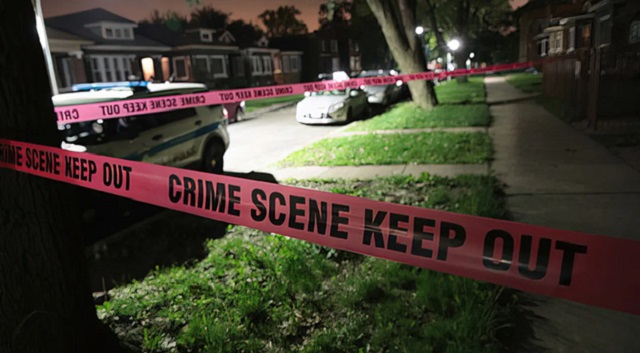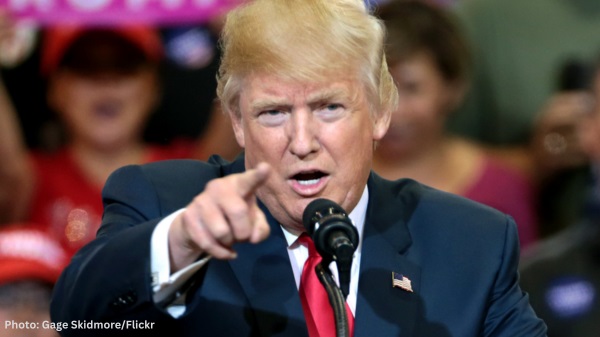Censorship Industrial Complex
Trudeau government abandoning long-threatened ‘hate speech’ bill after backlash
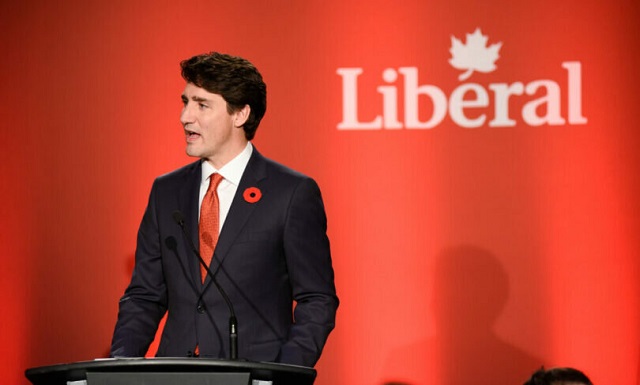
From LifeSiteNews
Conservative Party Leader Pierre Poilievre has warned that Trudeau’s desire to censor online ‘hate speech’ is nothing more than a ‘woke authoritarian’ tool to silence views that Trudeau dislikes.
The Liberal government is shelving its long-threatened bill to regulate truth and “disinformation” on the internet.
According to information obtained on February 21 by Blacklock’s Reporter, the Liberal government, under the leadership of Prime Minister Justin Trudeau, is abandoning legislation to regulate “hate speech” on the internet following feedback from Canadians that they consider the measure unconstitutional.
“The government heard from Canadians and stakeholders that while false and misleading information online can carry significant consequences, creating legislation and policies that restrict or otherwise limit speech based on the veracity of information would undermine freedom of expression to an unacceptable degree,” Public Safety Minister Dominic LeBlanc wrote the Commons ethics committee.
The committee had previously recommended legislation to “hold online platforms accountable for publishing false or misleading information”; however, LeBlanc replied that internet literacy programs were sufficient to regulate Canadians internet use.
“Legislation is not the only tool in the government’s toolbox to combat false or misleading information,” he said.
Additionally, most of 9,218 petitioners to the Canadian Heritage Department condemned the proposed legislation as unconstitutional.
Likewise, according to Privy Council research in 2023, most Canadians opposed the measure, saying that “it was of critical importance for Canadians to be able to leave comments and have their voices heard regarding initiatives and policies important to them.”
“While most believed harmful content online represented a growing concern few felt it to be a major issue at present,” the report said. “Several were of the view that individuals were typically able to avoid harmful content by blocking it or not utilizing platforms on which it was present.”
The legislation was first proposed in 2021, when the Trudeau government suggested that a “Digital Safety Commissioner” should police “content moderation” on the internet. Those who violated the “content moderation” would face up to $25 million in fines.
Then-Heritage Minister Steven Guilbeault argued the forbidden content should include anything that disparaged government institutions, saying, “Canada has a world-renowned public service, and it’s integral that we don’t attack them.”
“I think everybody in this country, and especially elected officials, have, I think, a responsibility, a duty to ensure that we protect our institutions and that the last thing we should try to do is to somehow diminish them just in the hope we can score points,” he added.
While Liberals support the measure, Conservative Party Leader Pierre Poilievre recently declared that Trudeau’s desire to censor online “hate speech” is nothing more than a “woke authoritarian” tool to silence views that Trudeau dislikes.
“What does Justin Trudeau mean when he says the worst hate speech?” he questioned during a press conference earlier this week. “He means speech he hates.”
Poilievre warned that Liberals would label anything they disagree with as “hate speech,” referencing former adviser Gerald Butts said that it was “hate speech” to criticize Trudeau for using the term “peoplekind,” labelling those who made fun of Trudeau as “Nazis.”
Poilievre also reminded Canadians that Trudeau branded Canadians who protested COVID regulations in the Freedom Convoy as “a small fringe minority” with “unacceptable views.”
“I point out the irony that someone who spent the first half of his adult life as a practicing racist, who dressed up in hideous racist costumes so many times he says he can’t remember them all, should then be the arbiter on what constitutes hate,” said Poilievre.
“What he should actually do is look into his own heart and ask himself why he was such a hateful racist… And maybe in that way, rather than through coercion, he could help us all in the fight against real hate,” he added.
“What does Justin Trudeau mean when he says the word hate speech? He means speech he hates.”
True North’s @AndrewLawton asks Pierre Poilievre whether the Conservatives will oppose the Trudeau government’s reintroduction of the online harms bill. pic.twitter.com/7PM9iJ5rzs
— True North (@TrueNorthCentre) February 21, 2024
While the bill regulating “hate speech” seems to have been abandoned for now, since taking office, Trudeau managed to pass bills C-11 and C-18, both of which restrict free speech over the internet.
Bill C-11, or the Online Streaming Act, became law last year and now mandates that Canada’s broadcast regulator, the Canadian Radio-television and Telecommunications Commission (CRTC), oversee regulating online content on platforms such as YouTube and Netflix to ensure that such platforms are promoting content in accordance with a variety of its guidelines.
Recently, Canadian law professor Dr. Michael Geist warned that new powers granted to Canada’s broadcast regulator via Bill C-11 will not stop at “Web Giants” but will lead to the government going after “news sites” and other “online” video sites as well.
Trudeau’s other internet censorship law, Bill C-18, the Online News Act, was passed by the Senate in June.
This law mandates that Big Tech companies pay to publish Canadians content on their platforms.
As a result, Meta, the parent company of Facebook and Instagram, blocked all access to news content in Canada.
Critics of Trudeau’s recent laws, such as tech mogul Elon Musk, have said it shows that “Trudeau is trying to crush free speech in Canada.”
Censorship Industrial Complex
New federal legislation should remind Canadians of Orwell’s 1984

From the Fraser Institute
By Jake Fuss and Alex Whalen
The legislation seeks to punish citizens not just for what the governments deems as “hate speech” but also grants the state power to bring Canadians before tribunals on suspicion that they might say something hateful in the future.
This year marks the 75th anniversary of George Orwell’s classic novel 1984 (and it’s been 40 years since the actual year 1984). In the novel, Orwell explains the dangers of totalitarianism by exploring what happens when government exercises extreme levels of control over citizens including censoring and controlling language. While Canada is a relatively free country in 2024, there are aspects of Orwell’s world reflected in government policy today.
The Human Freedom Index, published annually by the Fraser Institute and Cato Institute, defines freedom as a social concept that recognizes the dignity of individuals by the absence of coercive constraint. In a free society, citizens are free to do, say or think almost anything they want, provided it does not infringe on the right of others to do the same.
Canada currently fares relatively well compared to other countries on the Human Freedom Index, placing 13th out of 165 countries. However, our score has dropped six spots on the index since 2008 when Canada recorded its highest ever rank.
This is not surprising given the Trudeau government’s recent efforts to control and manage the free exchange of ideas. The recent Online Streaming Act imposes various content rules on major streaming services such as Netflix, and requirements to extract funds to be redirected toward favoured groups. The Act seemingly seeks to bring the entire Internet under the regulation of a government body.
In another piece of recent legislation, the Online News Act, the government attempted to force certain social media platforms to pay other legacy news outlets for carrying content. In response, the social media platforms chose simply not to allow content from those news providers on their platforms, resulting in a dramatic reduction of Canadians’ access to news.
Now, a new piece of federal legislation—Bill C-63, the Online Harms Act—seeks to control language and grant government power to punish citizens for what the government deems to be unfavourable speech.
The government has sold Bill C-63 as a way to promote the online safety of Canadians, reduce harms, and ensure the operators of social media services are held accountable. In reality, however, the bill is Orwell’s Big Brother concept brought to life, where government controls information and limits free exchange. The legislation seeks to punish citizens not just for what the governments deems as “hate speech” but also grants the state power to bring Canadians before tribunals on suspicion that they might say something hateful in the future. Not surprisingly, many have raised concerns about the constitutionality of the Bill, which will surely be tested in court.
Put differently, the Bill dictates that citizens may not only be punished for speech crimes, but also punished when another person or group of individuals believes they are likely to commit such a crime. The legislation outlines punishment mechanisms at the government’s disposal, including electronic monitoring devices, house arrest or jail time. Frighteningly, if the government doesn’t like what you say or even suspects they won’t like what you might say, then you could face serious repercussions.
That sounds eerily similar to Orwell’s concept of the Thought Police. In 1984, a secret police force investigates and punishes “thoughtcrimes,” which are personal and political thoughts unapproved by the state. The Thought Police monitor citizens and arrest anyone who engages in such crimes, to prevent personal autonomy and freedom of thought, thus providing the state with immense power and control over the populace.
The big government approach inherent in the Online Harms Act and others is antithetical to the idea of personal freedom. Famed English philosopher J.S. Mill was particularly observant in recognizing the perils of controlling and punishing speech government officials deem “dangerous.” In his book On Liberty, Mill stated “If any opinion is compelled to silence, that opinion may, for aught we can certainly know, be true. To deny this is to assume our own infallibility. Secondly, though the silenced opinion be an error, it may, and very commonly does, contain a portion of the truth; and since the general of prevailing opinion on any subject is rarely or never the whole truth, it is only by the collision of adverse opinions that the remainder of the truth has any chance of being supplied.”
Orwell’s famous novel provides a guidebook for what governments should avoid doing at all costs. Unfortunately, hints of 1984 have seeped into government policy in Canada today. The erosion of personal freedom is not something we should take for granted anymore.
Censorship Industrial Complex
‘We are in the most dangerous anti-free speech period in our history’
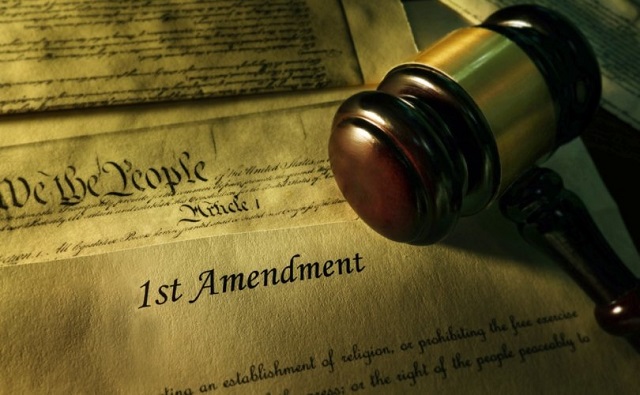
From LifeSiteNews
By Tom Olohan
“It’s hard to get a free people to give up freedom, you have to make them afraid, you have to make them very afraid. And that’s why you hear this echo chamber that its free speech that’s endangering us”
Jonathan Turley, a Fox News contributor and George Washington University law professor, issued some stark warnings on the future of free speech.
During the July 12 episode of MRC UnCensored, MRC Free Speech America Vice President Dan Schneider spoke with Turley about his new book, The Indispensable Right: Free Speech in an Age of Rage, and his observations about free speech and the media from a long and successful career.
Turley warned that journalism schools have abandoned long-held standards and young Americans have been indoctrinated against free speech. He made clear that a dangerous public-private partnership between powerful institutions threatened the future of the First Amendment.
“We are now in what the book refers to as the most dangerous anti-free speech period in our history, and the reason is indeed this alliance that has never formed before, of the government, corporations, academia [and] the media, all aligned against free speech,” he said.
Turley followed with a description of this alliance’s twisted rationale. “You now have on college campuses and in many media outlets, the unrelenting mantra that free speech is dangerous, that it is threatening us, threatening jobs, even threatening lives,” Turley said. “And the idea here is very simple, it’s hard to get a free people to give up freedom, you have to make them afraid, you have to make them very afraid. And that’s why you hear this echo chamber that its free speech that’s endangering us and if you just give the government more power over your speech you’ll be happy and safer.”
When Turley warned that the “wave” of censorship arriving in America “began in Europe,” Schneider lamented that American free speech had once inspired advocates of freedom in Europe and the world, such as Lech Wałęsa and Václav Havel. “And something has changed again, in Europe, in here, where people now see free speech as a threat to democracy, as a pose to the most important central element of democracy.”
Turley dug deep from his experience and observations to explain this state of affairs. He mentioned that he had poured 30 years of work into his book and observed the media make a massive turn for the worse during that period.
The Fox News contributor also noted that journalism schools have officially abandoned objectivity and neutrality. Turley made the point that the media had abandoned its principles in part because new graduates had been taught to abandon them: “J-schools now teach that, that objectivity and neutrality get in the way of social and political agendas. That’s what we’re producing from J-schools and its having an impact.”
To demonstrate just how radical newsrooms have become, Turley mentioned a recent conflagration at The Washington Post. Turley said that employees tried to get Post Publisher and CEO William Lewis fired for demanding changes to their unpopular and radical approach.
Reprinted with permission from NewsBusters.
-

 Brownstone Institute1 day ago
Brownstone Institute1 day agoThe Media Refuses to Accept Covid Reality
-

 Alberta1 day ago
Alberta1 day ago‘Fireworks’ As Defence Opens Case In Coutts Two Trial
-

 National1 day ago
National1 day agoLiberals offer no response as Conservative MP calls Trudeau a ‘liar’ for an hour straight
-
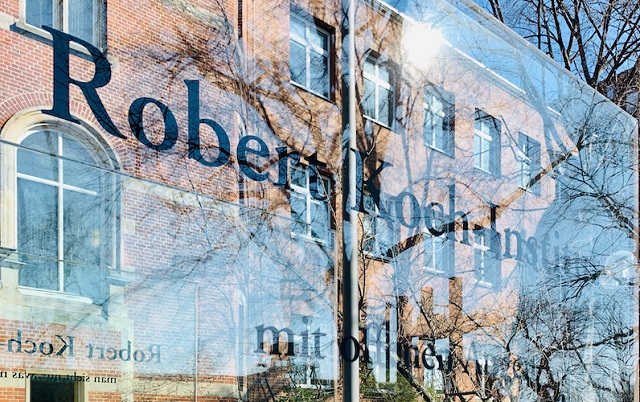
 COVID-191 day ago
COVID-191 day agoLeaked documents: German gov’t lied about shots preventing COVID, knew lockdowns did more harm than good
-

 illegal immigration2 days ago
illegal immigration2 days agoKamala Harris, Immigration Extremist
-

 Frontier Centre for Public Policy2 days ago
Frontier Centre for Public Policy2 days agoCowering before carbon
-

 Business1 day ago
Business1 day agoFederal government seems committed to killing investment in Canada
-

 International1 day ago
International1 day agoSwitzerland’s new portable suicide ‘pod’ set to claim its first life ‘soon’




